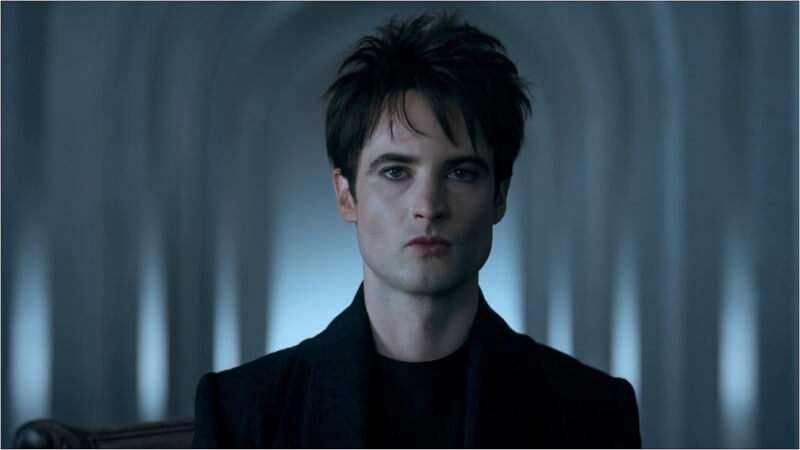In The Sandman Season 2, Dream of the Endless Earns His Graceful End
(Photo: Netflix)

Netflix’s The Sandman has faced its share of challenges: From the horrific real-life sexual misconduct and abuse allegations leveled against its original creator to the multi-year gap between seasons and a shorter-than-any-of-us-expected overall runtime, not much about its release has gone the way fans (or likely anyone involved with the production) expected. Yet, perhaps that’s precisely what helps make this final run of episodes feel so special. They probably shouldn’t exist, in all honesty, and they certainly shouldn’t be as almost universally excellent as they are.
Given how good the series’ first season is, it shouldn’t come as a surprise that its second is also great. But what The Sandman Season 2 manages to pull off by its final episode (though there’s still a bonus installment to come) is nothing short of miraculous. The limited two-season order and the technical and narrative limitations of telling a story for television mean that this show may not be what many of the comics’ most dedicated fans wanted—this series could probably have run for 4-5 seasons easily if its main focus had been bringing every panel of its source material to life. But when it comes to adaptation, it’s often better to be faithful to the spirit rather than the letter of the law. And while plenty of The Sandman is…let’s just say, not precisely textbook accurate, it gets so much of the emotional heart of this story exactly right. And nowhere is that more apparent than the way it handles Dream’s evolution onscreen. (Well, more like transformation. But also not. It’s complicated in the world of the Endless.)
The Sandman, the comic, is a story that’s largely about telling stories—why those stories have value, what they teach those of us who experience them, and the reasons we’re so driven to share them in the first place. The Sandman, the television series, is much more straightforwardly about Dream’s story, specifically. While the shift takes a bit of getting used to—or at least, for readers, a certain suspension of the fact that you know the sheer volume of what the show is leaving out—there’s still something deeply moving and satisfying at its core A story that is simultaneously about both the journey and the destination—as well as what waits for us after that journey’s end—the series’ final episodes deftly balance themes of grief and hope, death and rebirth, sacrifice and change. It is both bittersweet and strangely hopeful, an emotional gut-punch that’s as uplifting as it is devastating.
The back half of Season 2 is essentially the story of the consequences of its first five: Dream (Tom Sturridge) has spilled family blood by finally granting his son, Orpheus (Ruairi O’Connor), the mercy of death he has spent centuries denying him. In doing so, he has earned the wrath of The Kindly Ones, who threaten not just Dream himself, but the very existence of the Dreaming he rules. What follows is a slow-moving, suffocating tragedy, as Dream works to get his affairs in order, protect his kingdom, and name a successor, even as outside forces and those with old grudges work against him. Close calls and near-misses abound, all tinged with a sort of oppressive sense that none of this could happen any other way. (And yet you’ll wish it could.)
Yes, the second season of The Sandman barrels through and/or past many of the comics’ strangest and/or weirdest elements, even as it adds new moments and perspectives that don’t appear on the page. A Game of You is completely excised, though fan-favorite character Wanda (Indya Moore) is reinserted into the series’ take on Brief Lives. Johanna Constantine (Jenna Coleman) is sent alongside the second Corinthian (Boyd Holbrook) to find the missing infant Daniel Hall instead of Matthew the Raven (Patton Oswalt). Night (Tanya Moodie) and Time (Rufus Sewell) appear onscreen in all their strange and powerful otherness and refuse to help their Endless child change his fate.
-

-

-

-

-

-

-

-

-

-

-

-

-

-

-

-

-

-

-

-

-

-

-

-

-

-

-

-

-

-

-

-

-

-

-

-

-

-

-

-








































